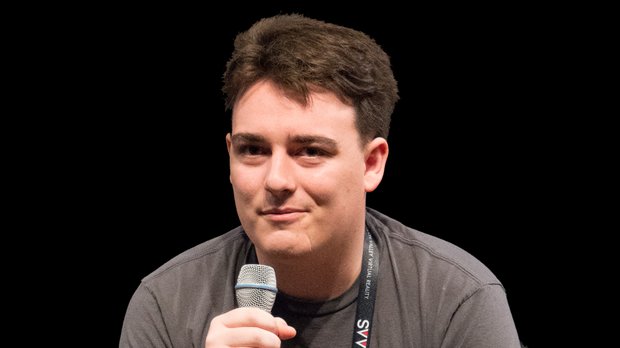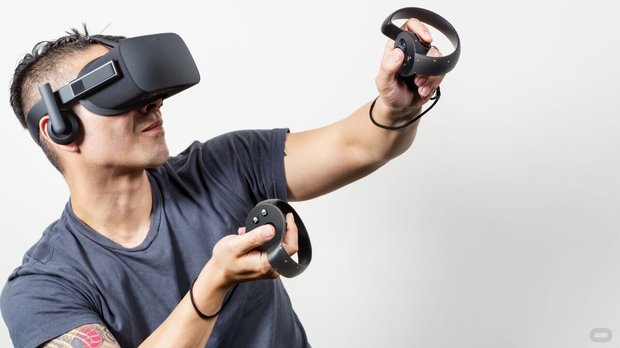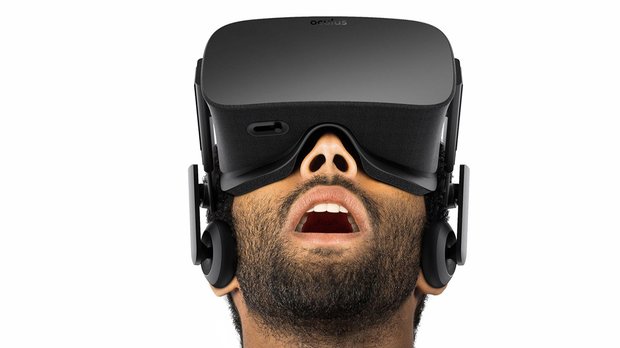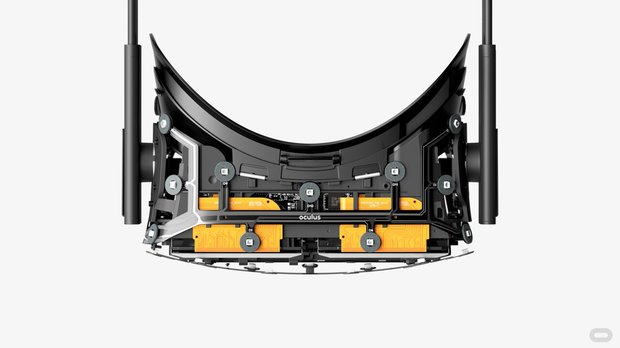"Virtual Reality is inevitable" - Palmer Luckey tells us about the future of gaming
“A lot of people dismiss Virtual Reality out of hand because they’ve never tried it.” So says Palmer Luckey, the founder of Oculus VR and creator of the Oculus Rift headset. See, Virtual Reality has a perception problem, and this is one of the biggest hurdles the fledgeling technology is yet to overcome. Me? I'm a believer, having used Oculus and Sony's Morpheus VR on several occasions, playing various games and experiencing a number of passive demos. Fact is, though, most feel as if they've been burned by faddy tech before, like Wii's motion control, 3D gaming, and Guitar Hero's plastic instruments. VR is different though. It's the real deal, and you need to give it a chance...

I've spent the day playing different VR demos, and have managed to keep my lunch down so far. With ease. Unlike the early prototypes, the new iterations of headsets render at higher frame-rates, making players far less queasy. Importantly, each experience offers a sense of genuine wonder, and gives me a new perspective on whatever genre or 'scenario' it represents. There's a real diversity to the software on offer here. It's no exaggeration to say that Virtual Reality is one of the biggest advances in gaming ever, given that it removes the barrier between player and game world. You exist within the game, and there are no borders between what you see 'on screen' and reality. That's the true beauty of the system. But until you try it, that fact is hard to imagine.
The actual suite of 'games' on offer are ever expanding, and most seem to genuinely be using the strengths (and weaknesses) of Virtual Reality to inform design. As well as earlier sessions with Alien Isolation, Elite: Dangerous, and EVE Valkyrie, my highlight of my demos here see me playing as the goal-keeper in an ice-hockey game, tracking the puck with my headset and using button prompts to make saves. The actual Oculus Touch demo gives a taste of how it feels to interact with another person, allowing you to throw items at each other, shoot targets with virtual guns, and even play games of ping-pong or catch. London Heist, for Morpheus, acts more like a traditional FPS, and Capcom's Kitchen demo creates a feeling of helplessness that you simply can't achieve in regular horror games.

In this sense, games are very much pioneering Virtual Reality. “It’s going to expand into a lot of other things like education, medicine, emergency response training and things like that,” enthuses Luckey. “Mostly it is going to start with gaming, and that’s because the games industry has all of the tools and the technology to build immersive real-time 3D worlds.”
And what worlds can we expect to see in the future? Luckey himself is a fan of Pokemon, admitting “that’s high on my list of dream worlds I’d like to explore”. He sees a game where you'd be able to actually throw your Pokeball into the arena and watch the battle play out in front of you, which seems like the ultimate evolution (pun intended) of the series. We also discuss MMOs, but Luckey - while realising the potential of having massive virtual worlds populated by fully-immersed players - says these are a long way off. “You shouldn’t expect to see VR headsets launching with VR MMOs just because those types of games... like, the development process for World of Warcraft was longer than that of the Oculus Rift.” They simply take too long to create, and VR is already on our doorstep.

Luckey himself is realistic about the criticisms surrounding the hardware he's pioneering too: “Some people try VR and they say 'This is incredible I have to have this right now!' Other people try it and they say 'Oh, this isn’t that interesting to me...' or 'The resolution’s too low' or 'It’s too bulky' or whatever. But once they’ve tried it they understand why they don’t want to use it, and they can usually imagine... 'Well, maybe you don’t want it now but what if were the size of a pair of sunglasses or ten times the resolution?' And then they’re like 'Oh, OK – then I guess that’d be more interesting.' And so I think whether you have a good opinion or a bad opinion you have to try VR to understand what it is now and what it would need to be before you would actually want to use it.”
For some, it's about the actual look and feel of wearing a headset. Yes, we've all seen (and cringed at) Lawnmower man. We've all felt the vague shame of holding a plastic guitar, and worried that we looked like a wally while waving a Wii-mote around to simulate a simple game of tennis. Anything that makes us look strange or unusual will always deter some people, and the fact that you can't see people staring at you while wearing a VR headset only makes things more uncomfortable.
Weekly digests, tales from the communities you love, and more
“VR headsets will get smaller over time, and that will help,” admits Luckey. “I also think that there are different kinds of consumers. If you’re trying to make something that people can use all the time, wear it every day (and out in public), sure then you kind of have to change what fashion is. You have to make VR 'fashionable' for people to want to wear it, and that isn’t going to happen in the near term.”

However, Luckey is quick to point out that “if you’re a gamer and you have high end graphics cards - I don’t want to stereotype - but you’re probably not the kind of person who cares about fashion”. It's a fair point. For people who genuinely care about new experiences in games, the look of the technology is far less of a barrier to entry. The same can be said for price too. VR requires a significant outlay to begin with, and that represents a real leap of faith for anyone considering giving it a try. Again, though, experiencing VR will help you decide.
And Virtual Reality is coming, whether you like it or not, and the best thing you can do is try and experience it to appreciate the potential it has. And yes, I know that launching a product and sustaining it for decades are two very different things. History is littered with superior dead tech, like the Wonderswan, PS Move, and poor old Betamax. How do we know VR won't underwhelm and go quietly into the night, like 3D TVs, for example?
Luckey is keen to weigh in: “The thing about 3D TV is that it was never a real medium, it was another feature for TVs that... it changed the experience, but not fundamentally. It was a little bit of an additional thing, but fundamentally you’re still watching a very narrow field-of-view image on a TV on a wall. Virtual Reality on the other hand I think is inevitable. If you look at 3D TV and think how far it could go; ultimate 3D TV like with 16K resolution and 240 frames-per-second or whatever, it’s still about the same as what we have today. If you think about Virtual Reality, and what the ultimate conclusion is - it’s basically technology that you use to see virtual worlds that are as real as the real world except without any of the limitations of the real world.”

“Thinking about it that way, it’s very clear that VR will take off - it’s just a matter of time,” says Luckey, confidently. “Will it take one year, five years, ten years before it’s mainstream? I can’t say. It’s going to depend on how fast we can push this technology, but I think that if you told someone 'Hey what if you could put on a pair of glasses and be anywhere in the world with perfect quality?', very few people would say 'Oh no, that’ll never take off'.” Having sampled more and more of the tech I, for one, am not one of them...



